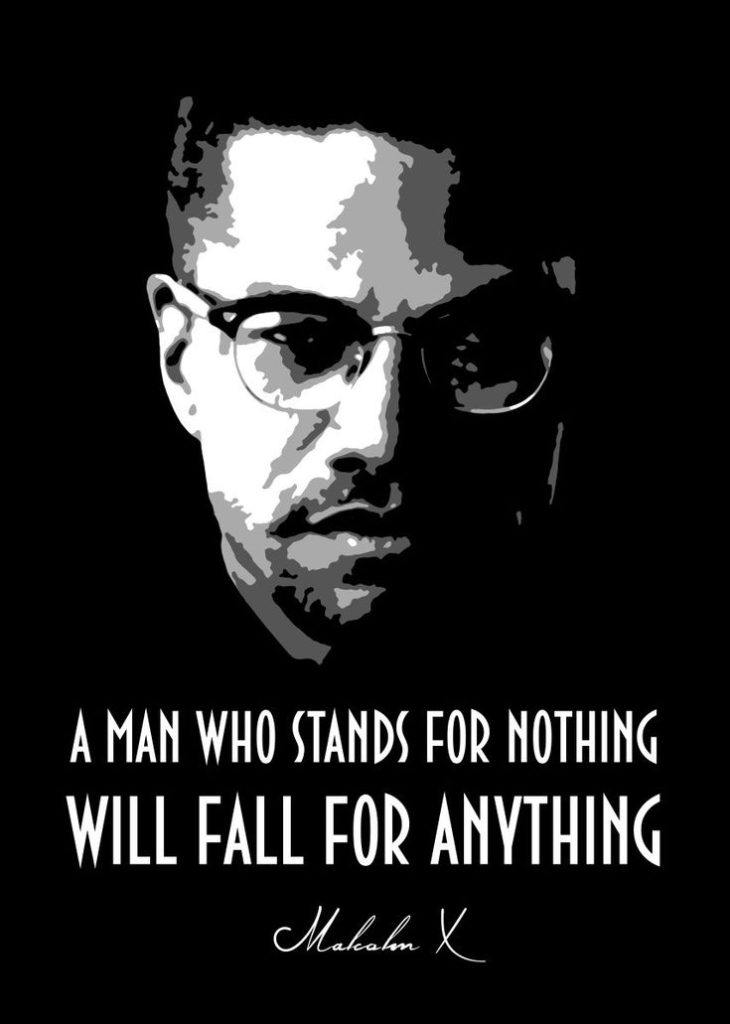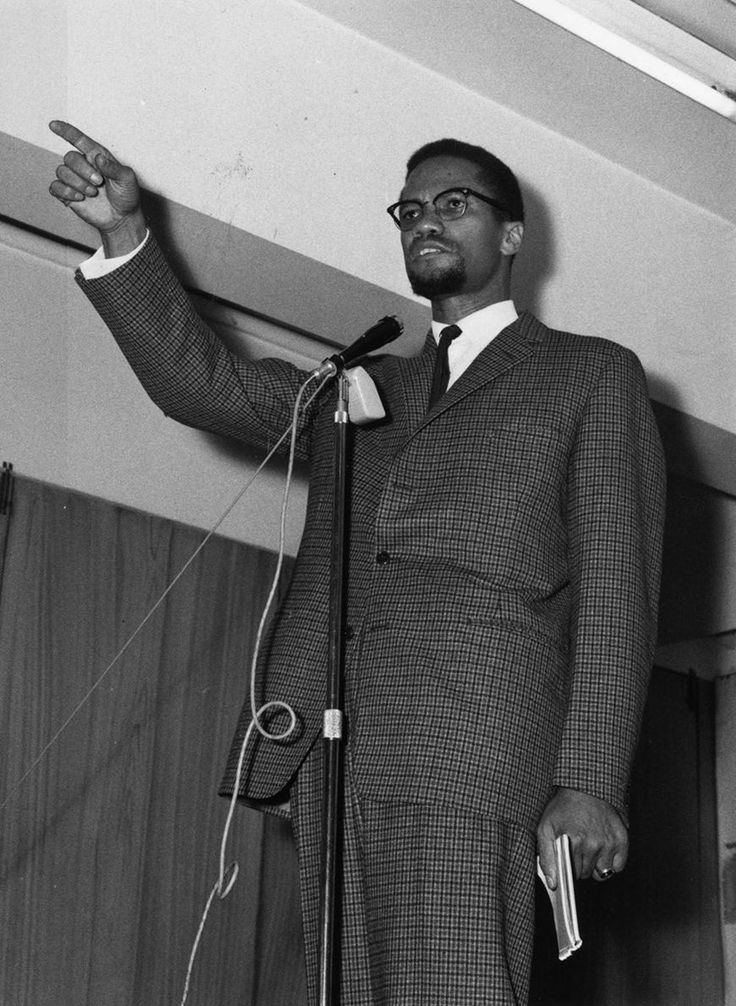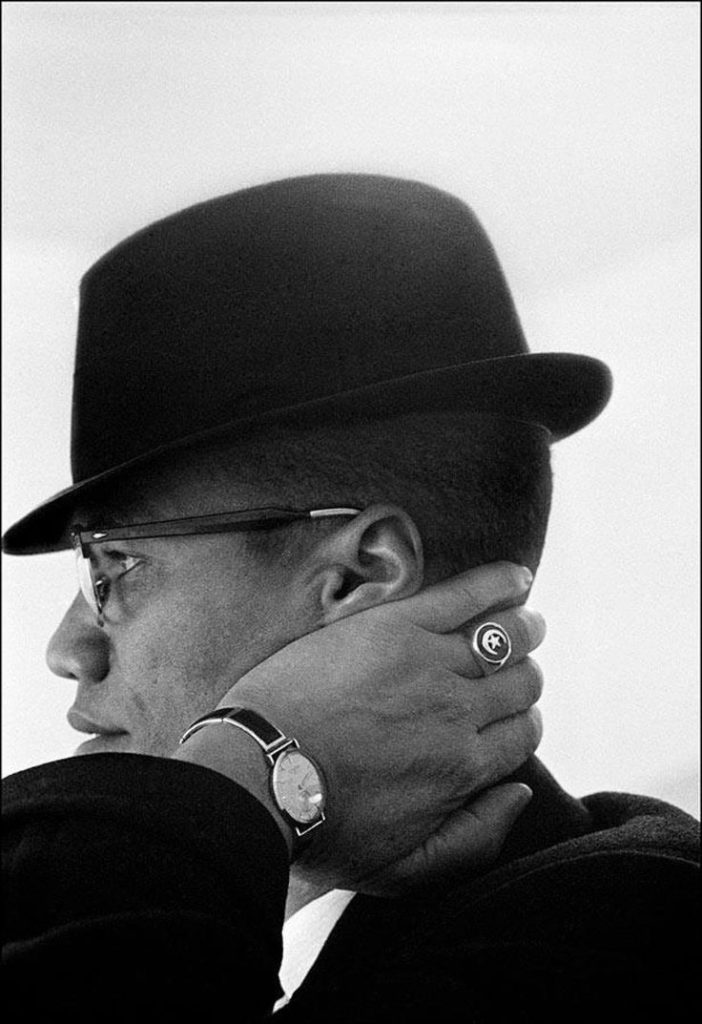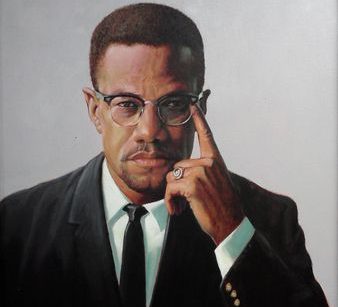Malcolm X: A Controversial Revolutionary in Civil Rights
Malcolm X, born Malcolm Little on May 19, 1925, in Omaha, Nebraska, was a charismatic and controversial figure in the American civil rights movement. His journey from a troubled youth to a prominent leader in the Nation of Islam, and later his evolving views towards a more inclusive approach, made him a symbol of resistance and transformation.

Early Life and Conversion
Childhood Challenges
Malcolm X faced many hardships early on. His father died tragically, and his mother was put in an institution. His childhood was unstable, and he eventually got involved in crime.
Incarceration and Conversion
While serving time in prison, Malcolm X underwent a transformative experience. He embraced the teachings of Elijah Muhammad, the leader of the Nation of Islam, and converted to Islam. His commitment to the Nation of Islam played a pivotal role in shaping his subsequent activism.

“Education is the passport to the future, for tomorrow belongs to those who prepare for it today.”
– Malcolm X
Nation of Islam and Black Nationalism
Leadership in the Nation of Islam
Malcolm X rapidly rose through the ranks of the Nation of Islam, becoming a prominent spokesperson. His fiery speeches and uncompromising advocacy for Black separatism and self-defense against racial violence garnered both admiration and criticism.
Black Nationalism and Self-Reliance
Malcolm X’s philosophy embraced Black nationalism, emphasizing the economic and political empowerment of African Americans. He advocated for self-reliance, encouraging the Black community to establish its economic infrastructure.

Split with the Nation of Islam
Disillusionment with Elijah Muhammad
Malcolm X’s relationship with the Nation of Islam soured as he became disillusioned with its leader, Elijah Muhammad. Revelations about Muhammad’s moral indiscretions and the organization’s restrictive policies prompted Malcolm X to break away in 1964.
Pilgrimage to Mecca
Following his departure, Malcolm X undertook a pilgrimage to Mecca, a transformative experience that broadened his perspective on race and Islam. He witnessed a more inclusive form of Islam that embraced people of all races, challenging his previous beliefs in racial separation.

Assassination and Legacy
Assassination
On February 21, 1965, Malcolm X was assassinated during a speech at the Audubon Ballroom in New York City. The circumstances surrounding his death remain controversial and have fueled various conspiracy theories.
Legacy and Influence
Malcolm X’s legacy is multifaceted. While his earlier advocacy for Black separatism and self-defense remains controversial, his later shift towards inclusivity and collaboration with other civil rights leaders, such as Martin Luther King Jr., showcased a complex evolution.
“I’m for truth, no matter who tells it. I’m for justice, no matter who it’s for or against.”
– Malcolm X

Continuing Relevance and Impact
Influence on Black Consciousness
Malcolm X’s ideas continue to resonate in discussions on Black consciousness, racial pride, and the pursuit of justice. His emphasis on self-respect and the rejection of oppression remains influential in contemporary activism.
Cultural References
Malcolm X’s life has been depicted in various films, books, and documentaries, contributing to the ongoing discourse on his legacy. Denzel Washington’s portrayal of Malcolm X in the 1992 film directed by Spike Lee brought his story to a wider audience.
Table: Key Events in Malcolm X’s Life
| Year | Event |
|---|---|
| 1925 | Birth of Malcolm Little |
| 1946 | Conversion to Islam in prison |
| 1952 | Becomes a minister in the Nation of Islam |
| 1964 | Breaks away from the Nation of Islam |
| 1964 | Pilgrimage to Mecca and shift in ideological stance |
| 1965 | Assassination in New York City |
Conclusion
Malcolm X’s life reflects the complications of the struggle for civil rights and the evolution of individual ideologies. From his early advocacy for Black separatism to his later embrace of a more inclusive vision, Malcolm X’s journey remains a subject of analysis, debate, and inspiration. As we reflect on his legacy, we are reminded of the importance of challenging perspectives, seeking truth, and working towards a more just and equitable society.
Frequently Asked Questions (FAQs)
Q1: Who was Malcolm X?
A1: Malcolm X, born Malcolm Little, was a prominent figure in the American civil rights movement. He initially gained prominence as a spokesperson for the Nation of Islam, advocating for Black separatism and self-defense. His later transformation and advocacy for inclusivity marked a significant shift in his ideology.
Q2: What were Malcolm X’s core beliefs?
A2: Malcolm X initially embraced the teachings of the Nation of Islam, promoting Black separatism, self-defense, and the establishment of a separate Black nation. However, after a pilgrimage to Mecca, he underwent a profound change, advocating for unity among all races and religions.
Q3: What is Malcolm X’s legacy?
A3: Malcolm X’s legacy is complex and multifaceted. He is remembered for his early advocacy for Black empowerment, his later shift towards inclusivity, and his impact on Black consciousness. His life has inspired ongoing discussions about race, justice, and the evolution of individual ideologies.
Q4: How did Malcolm X die?
A4: Malcolm X was assassinated on February 21, 1965, during a speech at the Audubon Ballroom in New York City. The circumstances surrounding his death remain controversial and have given rise to various conspiracy theories.
Q5: What is Malcolm X’s impact on civil rights?
A5: Malcolm X played a crucial role in the civil rights movement by advocating for Black empowerment and challenging systemic racism. His influence is evident in discussions on racial pride, self-respect, and the pursuit of justice.
Q6: How did Malcolm X’s pilgrimage to Mecca influence him?
A6: Malcolm X’s pilgrimage to Mecca exposed him to a more inclusive form of Islam that embraced people of all races. This experience broadened his perspective, leading to a shift in his beliefs towards unity and collaboration among people of different races and religions.
Q7: Was Malcolm X involved in the civil rights movement alongside Martin Luther King Jr.?
A7: While Malcolm X and Martin Luther King Jr. initially pursued different approaches to civil rights, Malcolm X’s later evolution included a willingness to collaborate with other leaders, including King. Their meeting in 1964 symbolized a potential convergence of their efforts before Malcolm X’s assassination.
Q8: How is Malcolm X remembered today?
A8: Malcolm X is remembered as a complex and influential figure in the fight for civil rights. His legacy continues to shape discussions on racial identity, justice, and the ongoing struggle for equality. Various cultural references, including films and books, contribute to keeping his story alive.









